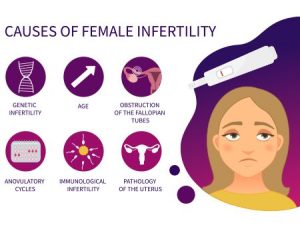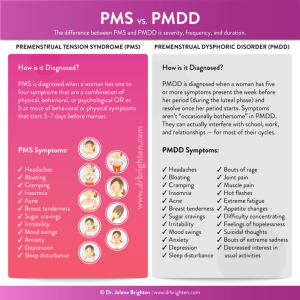The connection between chronic inflammation and women’s health

Inflammation is a natural process that occurs in our bodies as a response to infection or injury. It helps the immune system to heal damaged tissues and fight off harmful pathogens. However, when inflammation becomes chronic, it can have detrimental effects on overall health, especially for women.
The Impact of Chronic Inflammation on Women’s Health
Research has demonstrated a strong connection between chronic inflammation and several common health conditions that affect women. One such condition is polycystic ovary syndrome (PCOS), an endocrine disorder characterized by hormonal imbalances and cysts on the ovaries. Chronic inflammation disrupts hormone regulation and can contribute to the development of PCOS.
Furthermore, chronic inflammation has been linked to increased risks of infertility, endometriosis, and irregular menstrual cycles. Inflammation in the reproductive system can impair fertility and create challenges for women trying to conceive. It can also exacerbate symptoms related to endometriosis, a condition where the uterine tissue grows outside the uterus, leading to severe pain, inflammation, and potential fertility problems.
The Role of Chronic Inflammation in Autoimmune Diseases
Autoimmune diseases, which primarily affect women, are also intimately tied to chronic inflammation. Conditions like rheumatoid arthritis, lupus, and multiple sclerosis involve the immune system mistakenly attacking healthy cells and tissues, leading to chronic inflammation. Researchers believe that genetic and environmental factors trigger these diseases, and chronic inflammation acts as a significant catalyst.
Strategies to Reduce Chronic Inflammation
While chronic inflammation has significant consequences for women’s health, there are steps one can take to reduce its impact. Maintaining a healthy lifestyle is crucial, including a balanced diet rich in anti-inflammatory foods such as fatty fish, leafy greens, and nuts. Regular exercise can also help reduce inflammation in the body.
Stress management is equally important, as chronic stress can contribute to inflammation. Engaging in activities like yoga, meditation, or deep breathing exercises can help relieve stress and promote overall well-being. Additionally, quitting smoking and limiting alcohol consumption can have a positive impact on reducing chronic inflammation levels.
It’s important to consult with a healthcare professional before making any significant changes to your lifestyle or starting any new treatments. They can provide personalized recommendations and help monitor any underlying conditions that may be causing chronic inflammation.
Conclusion
Chronic inflammation is a significant concern for women’s health, as it has been linked to various conditions such as PCOS, infertility, endometriosis, and autoimmune diseases. Understanding and addressing chronic inflammation is essential for maintaining overall wellness. By adopting a healthy lifestyle, incorporating anti-inflammatory foods, managing stress, and seeking professional guidance, women can take control of their well-being and reduce the risks associated with chronic inflammation.
© 2022 Your Tech Niche – All rights reserved






